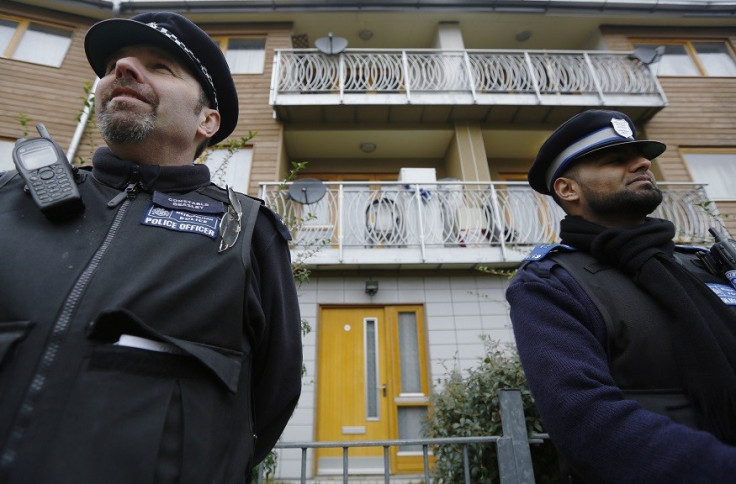Lambeth Slave Women: Comrade Bala was Suspected Maoist Slave Master

The couple accused of holding three women against their will in south London for more than 30 years have been identified.
Aravindan Balakrishnan, 73, and his wife Chanda, 67, have been named as the pair believed to have kept the three women in "invisible handcuffs" at the address in Brixton.
Police described the 69-year-old Malaysian, the 57-year-old from Ireland and the 30-year-old British woman as being "highly traumatised" after they were rescued. They are receiving specialist care.
Scotland Yard confirmed that they were looking into a further 13 properties across London to uncover whether the women were kept in different homes over the last 30 years. Door-to-door enquires have been carried out close to where the women were found.
The couple accused of keeping the woman captive for decades are believed to have been part of a Maoist sect in south London.
The suspects, who are of Indian and Tanzanian origin, arrived in the UK in the 1960s. Police believe that two of the victims met Aravindan Balakrishnan in London through a "shared political ideology" and that they lived together at an address that police said you could "effectively call a 'collective'".
Balakrishnan, also known as Comrade Bala, was suspended from the Communist Party of England in 1974 after launching an "entirely unprovoked and thoroughly unprincipled external attack on the party", according to Marxist archives.
'Under the spell of Balakrishnan'
He then went onto the form a new organisation called the Workers' Institute of Marxism-Leninism-Mao Zedong Thought - a far-left group whose manifesto revolved around "worshipping" former Chinese dictator Chairman Mao.
A manifesto from the group read: "Thousands of people, in particular the poorer working people in the area, began to visit and use the centre. Already two years before the centre was established our comrades had begun to boldly arouse the people of Brixton with the proletarian revolutionary line of beloved Chairman Mao."
It adds: "The Communist Party of China and Chairman Mao are on the verge of launching the final offensive, this year [1975] to dismantle the old world of colonialism, imperialism and hegemonism and build the new world of socialism. The establishment of the international dictatorship of the proletariat is necessary for this, led by the Communist Party of China and Chairman Mao and with the People's Liberation Army of China as its main pillar. Only thus can mankind march forward to communism."

Oxford University Professor Steve Rayner, director of the institute for science, innovation and society, researched the group in the 1970s. He told the Evening Standard: "They were a tiny, very tight-knit group clearly under the spell of their leader 'Comrade' Balakrishnan.
"Their membership was overwhelmingly overseas in origin. Most were foreign students who seemed to have difficulty adjusting to life in the UK. They refused to recognise the legitimacy of the state and maintained a hostile attitude towards the establishment and towards the rest of the far-left in Britain at that time.
"Their ideology was profoundly detached from reality. In my article on the organisation I described them as a millenarian sect. Their bookshop in Brixton - the Mao Tse Tung Memorial Centre - closed around 1978. I had assumed that they had sunk without trace until this recent news."
Both the suspects were arrested in 1978. Reports at the time suggest the pair have been arrested a number of times for their political activism and also spent time in jail.
Cmdr Steve Rodhouse of the Metropolitan Police, said: "We believe that two of the victims met the male suspect in London through a shared political ideology, and that they lived together at an address that you could effectively call a 'collective'.
"Somehow that collective came to an end and the women ended up continuing to live with the suspects.
"How this resulted in the women living in this way for over 30 years is what are seeking to establish, but we believe emotional and physical abuse has been a feature of all the victims' lives."
© Copyright IBTimes 2024. All rights reserved.






